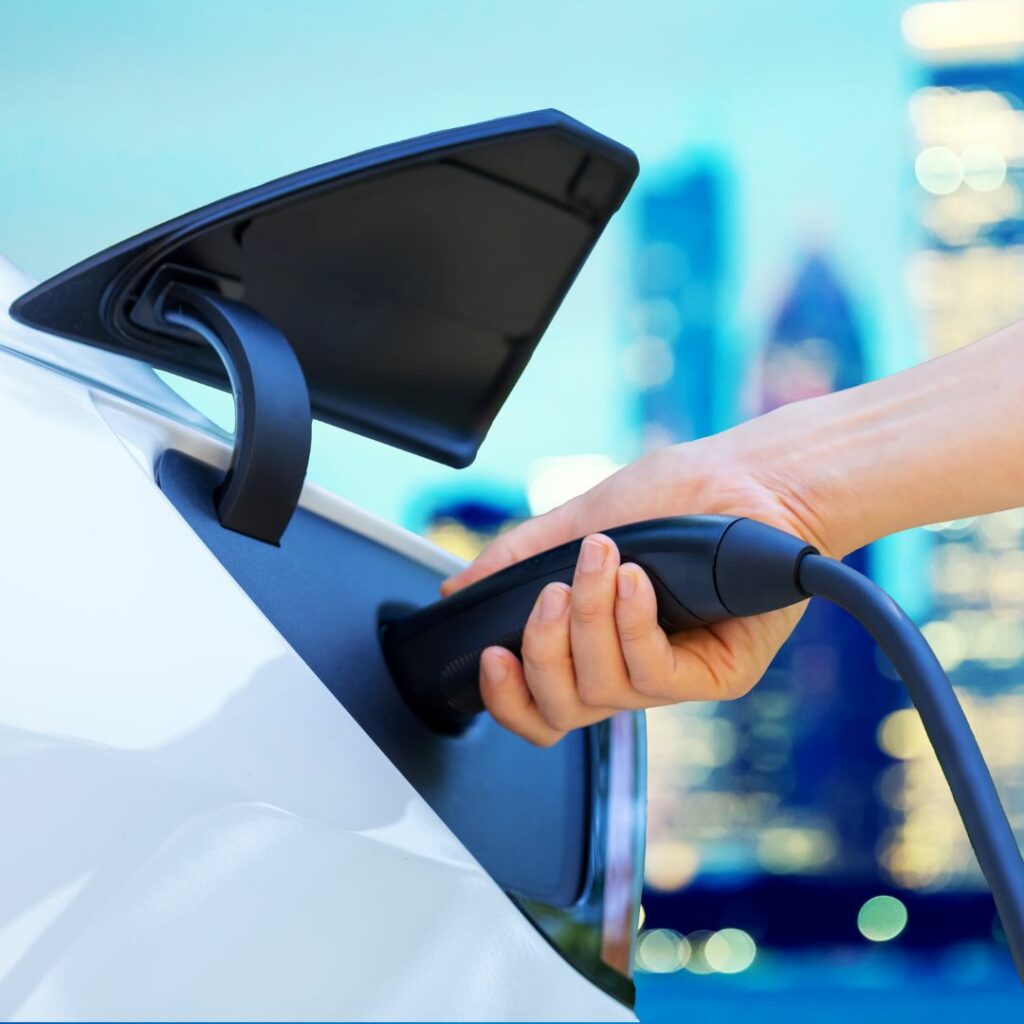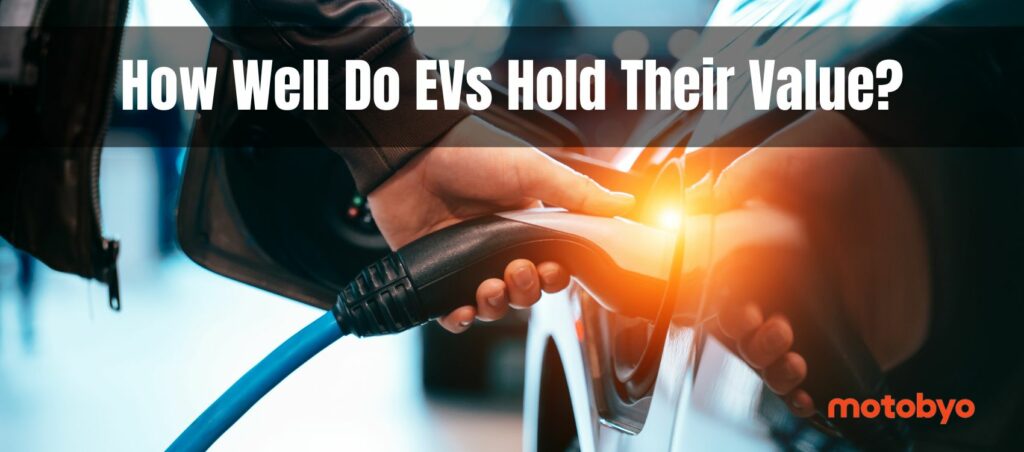Electric vehicles (EVs) are taking over the automotive industry. In 2023, the sale of EVs in the US rose by 74%. They still account for a very small sliver of the total market, but more and more buyers are considering an EV as an alternative.
But while everyone loves the idea of saving on fuel costs, how much will you be able to sell your EV for in the future? How well do EVs hold their value, and should you invest in one? Join us as we take you through the electrifying world of car depreciation.
Resale Value of EVs

Sadly, electric vehicles don’t hold their value for long and depreciate a lot faster than gas-powered vehicles. Over a 3 to 5-year period, an electric vehicle will generally depreciate by 48% of its value, with some hitting well beyond the 50% mark.
That’s right — you’ll only be able to sell your car for half the price you bought it for. For comparison, the average internal combustion engine (ICE) vehicle will depreciate at 15 – 30% over three years. So, if owning an EV is on your bucket list, it may not be the best option if you’re looking to upgrade after a few years.
The next question that comes to mind is: why do electric vehicles depreciate so quickly? Let’s crack open the mystery.
Factors that affect the resale value of EVs
Even with their novelty and luxurious features, the plunge in the value of EVs is spooky. To be honest, it’s quite confusing. Here are a few reasons why this is the case.
Depreciation
Depreciation — the bane of every car owner. Even electric vehicles are not immune to it. Like other depreciating assets, your car will lose value over time, and unfortunately, there’s little you can do about it.
Market forces such as supply and demand, age and mileage, and repair and maintenance costs are all causes of depreciation. A few other things to consider are:
Battery Life
Your EV’s battery is what differentiates it from a gas-powered car and is the most important component. Here’s the problem — an EV’s battery is insanely expensive and, at the same time, has a limited lifespan.
Over time, your car’s battery will degrade and lose its ability to hold a charge. This makes them less desirable to potential buyers. On average, expect your battery to last 8 to 10 years or 100,000 to 150,000 miles in most cases.
And if you live in hot climatic areas, the battery will degrade at an even faster rate. Excess heat is known to expand and crack a battery’s casing.
Brand Reputation
Choose a quality brand of vehicle from a manufacturer that’s known for producing reliable vehicles. Substandard brands with subpar models will become worthless over time and will not attract buyers when you’re ready to sell.
Even so, just because a brand is popular and has a good reputation doesn’t necessarily imply that its vehicles hold value better. EVs in general just don’t hold their values very well.
How to Maximize the Resale Value of an EV
Here are a few tips to help you get the top dollar when it’s time to sell your electric vehicle.
Maintenance
Maintenance is one of the key factors that affect the resale value of your electric vehicle. A well-maintained electric vehicle with the proper service records is worth more than one which has been neglected.
Small things like caring for your car and keeping it clean and tidy can make it attractive to buyers and increase its resale value. Don’t skimp on maintenance — that’s the first rule.
Battery Care
A healthy car battery translates to better range and performance. And the good news is that taking good care of your EV’s battery is a no-brainer. Here are a few ways to go about it.
- Avoid letting your battery deplete down to zero. Have it charged between 20% to 80% for optimal performance and long-term health.
- As mentioned earlier, extreme temperatures (both high and low) will affect your battery. Use a heater if you live in cool areas, and consider parking your car under a shed or in a garage during hot periods.
- Have regular battery checkups. Your mechanic may catch a potential problem before it turns out to be something big.
And finally, take note of charging stations when on long trips. Don’t let your vehicle run down to zero.
Selling Strategies
You’ve properly maintained your EV and taken good care of its battery. Now, it’s time to sell it. How do you get the best possible price? Here are a few selling strategies to help you out.
- Be strategic on the timing. Sell your car when the demand is high. Spring and summer are normally the best periods.
- While you want a fair price for your car, be competitive. Research how much similar models are selling for in your area and work from there.
- When speaking to a potential buyer, make sure to highlight your car’s unique features. It’s always good practice to highlight upgrades when selling a vehicle.
- Finally, advertise the vehicle where you’ll get views from verified buyers. Getting attention and offers from vetted buyers will make the sale happen much faster.

Expect to lose a chunk of money when it’s time to sell or trade-in your electric vehicle. It’s not what any EV owner wants to hear, but it’s the sad truth. Luckily, with our tips, you can be sure to get the best price for it.
Motobyo helps you sell and buy your car online. And with our depreciation calculator, you can get an estimate of your car’s value. Visit Motobyo today to get the best price for your electric vehicle!
FAQs
Do Electric Cars Have Good Resale Value?
Electric cars tend to have a poorer resale value than gas-powered cars due to their faster depreciation rate and less overall demand.
Do Electric Cars Depreciate Faster?
Yes. You can expect to see a much higher depreciation rate over the course of ownership when compared to an ICE vehicle. Electric vehicles generally do not hold their value well.
What EV Brand holds value the best?
Some Tesla models have done well, but it’s too early to tell. Other premium brands like Porsche and Mercedes-Benz have recently entered the EV market, so things can change quickly.
Does My Electric Car Battery Affect My EV’s Resale Value?
Yes. The battery in an EV is essentially its engine, meaning that if it is in poor condition you will see a drop in resale value the same way you would with a gas-powered vehicle with a faulty engine.



